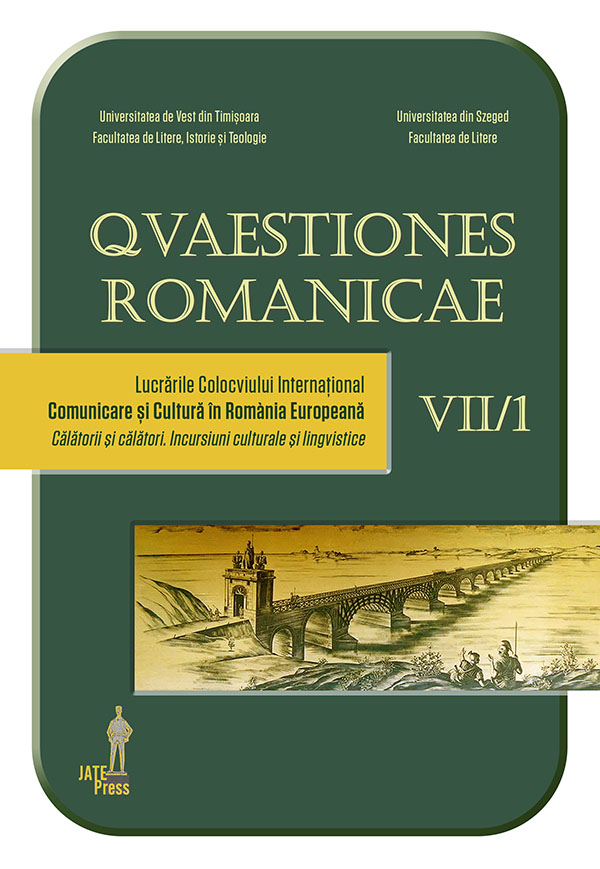Călătoria spre fericire. Effingere Deum vs. Habere Deum
Abstract: (The Voyage to Happiness. Effingere Deum vs. Habere Deum) In Antiquity, life was often illustrated as a voyage on a smooth or stormy sea, while happiness was seen more like an attitude of gratitude in front of joy and of resistance in front of trouble. The active contribution, the human implication in decoding the mechanisms implied in obtaining and maintaining the supreme wellbeing was constantly pointed out. In De beata vita, Saint Augustine sketches the metaphor of the man navigating on the waves of the ephemeral existence from a perspective which puts together the author’s Christian beliefs with his predecessors’ philosophy. To the Church Father, happiness, that strip of land on which one walks after getting off from the harbour of philosophy, represents on one side the fruit of the human efforts in building up an irreproachable moral conduct, but on the other side the most beautiful present offered by the divine. In the winding debate upon the indispensable conditions of reaching happiness, the one which opens the gate to the semantic polyvalences is expressed by the syntagma: “habere Deum”. Our paper intends to treat about the importance of this condition which comprises all the other ones, but also about the place of happiness in the Christians’ lives during the fourth century a.D.
Keywords: happiness, philosophy, voyage, creator, innovation.
Rezumat: În Antichitate, imaginea vieţii a fost adesea redată în termenii unei călătorii pe marea liniştită sau dezlănţuită sub vântul furtunii. De aici nu a mai fost decât un pas până la fuziunea ei cu imaginea fericirii înţelese în sensul cultivării unei atitudini de recunoştinţă în faţa bucuriilor şi de rezistenţă în faţa necazurilor. Contribuţia activă, implicarea omului în descifrarea mecanismelor care conlucrează la dobândirea şi perpetuarea stării de bine suprem a fost punctată cu consecvenţă. În De beata vita, Fericitul Augustin conturează metafora omului navigator pe apele existenţei vremelnice dintr-o perspectivă care îngemănează convingerile sale creştineşti cu filosofia predecesorilor. Pentru părintele Bisericii, fericirea, acea fâşie de uscat pe care se păşeşte coborându-se din portul filosofiei, constituie atât rodul eforturilor omeneşti în construirea unei conduite morale ireproşabile, cât şi cel mai mare dar oferit de divinitate. În vârtejul dezbaterii pe marginea condiţiilor indispensabile atingerii fericirii, cea care deschide poarta polivalenţei semantice este exprimată prin sintagma “habere Deum”. Prezenta lucrare îşi propune să trateze despre însemnătatea acestei condiţii care ajunge să le cuprindă pe toate celelalte, dar şi despre locul fericirii în viaţa creştinului în secolul al IV-lea d.Hr.
Cuvinte-cheie: fericire, filosofie, călătorie, creator, inovaţie.
